Postcards from researchers...
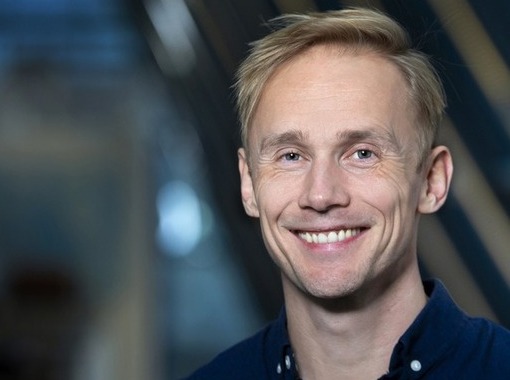
Pétur Orri Heiðarsson,
Associate Professor
in Physical Sciences
Associate Professor
in Physical Sciences
Dr. Pétur Orri, Associate Professor in Physical Sciences, alongside other scientists at the University of Iceland, has studied how the human body accesses genetic information that affects all bodily functions. The study examines relatively newly discovered proteins that, unlike other proteins, do not have a fixed three-dimensional structure. These proteins are unstructured and scientists are just beginning to understand their power and importance in biology and disease and how these proteins affect the availability of information in the human genome.
Societal Impact
Health and Science: Impacts state of knowledge in Biochemical Sciences.
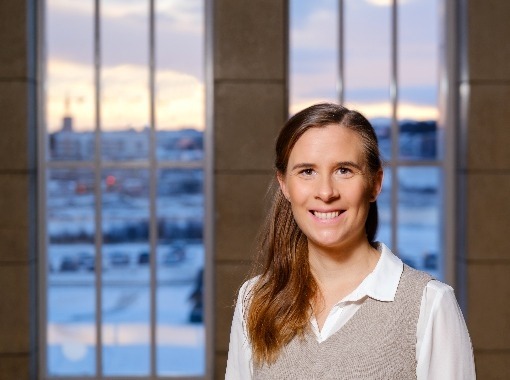
Rúna Sif Stefánsdóttir,
Assistant Professor at Faculty of Health Promotion, Sport and Leisure Studies
Assistant Professor at Faculty of Health Promotion, Sport and Leisure Studies
Dr. Rúna Sif, has been researching sleep and its relationship with academic performance and cognitive aspects in Icelandic youth for the past few years. Rúna's research is part of the project Health behaviours of young Icelanders, it is a long-term study of the state of health aspects of young Icelanders and their relationship with sleep, physical activity and the school environment. Rúna's main goal has been to measure, with an objective measure, the sleep of Icelandic youth between the ages of 15 and 17, during the school transition from primary school to secondary school, and to examine whether their sleep patterns are related to academic performance and cognitive factors.
Societal Impact
Health and Wellbeing Which is one of Sustainable Development goals of the United Nations.
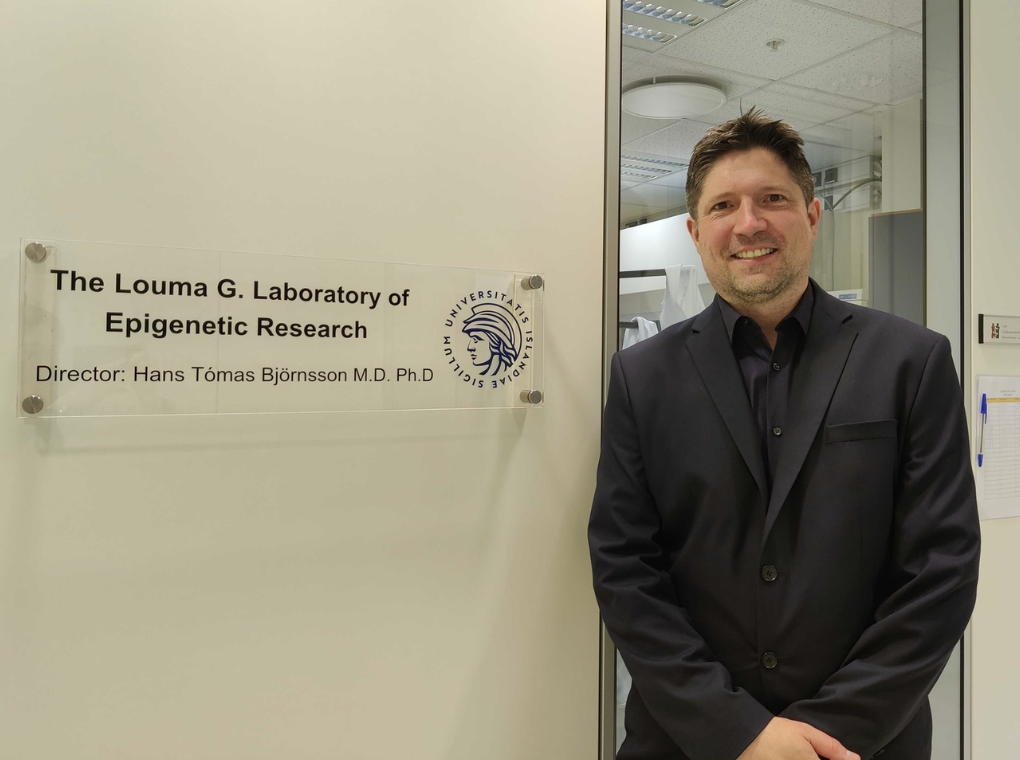
Hans Tómas Björnsson,
Professor at Faculty of Medicine
Professor at Faculty of Medicine
Dr. Hans Tómas, Professor at the University of Iceland Faculty of Medicine has focused in particular on one disorder, Kabuki syndrome, which is caused by loss of function variants in either of two genes encoding histone-modifying enzymes. Kabuki syndrome causes intellectual disability, growth deficiency and immune dysfunction.It has previously been generally accepted among scientists that intellectual disability cannot be treated after birth. However, Hans Tómas and his team believe that their research and other studies contradict this theory, at least in the case of Kabuki syndrome, and suggest that intellectual disability can in fact be treated. Indeed, the team's end goal is to develop a safe treatment that can reduce the severity of the syndrome.
Societal Impact
Health and Wellbeing Which is one of Sustainable Development goals of the United Nations.
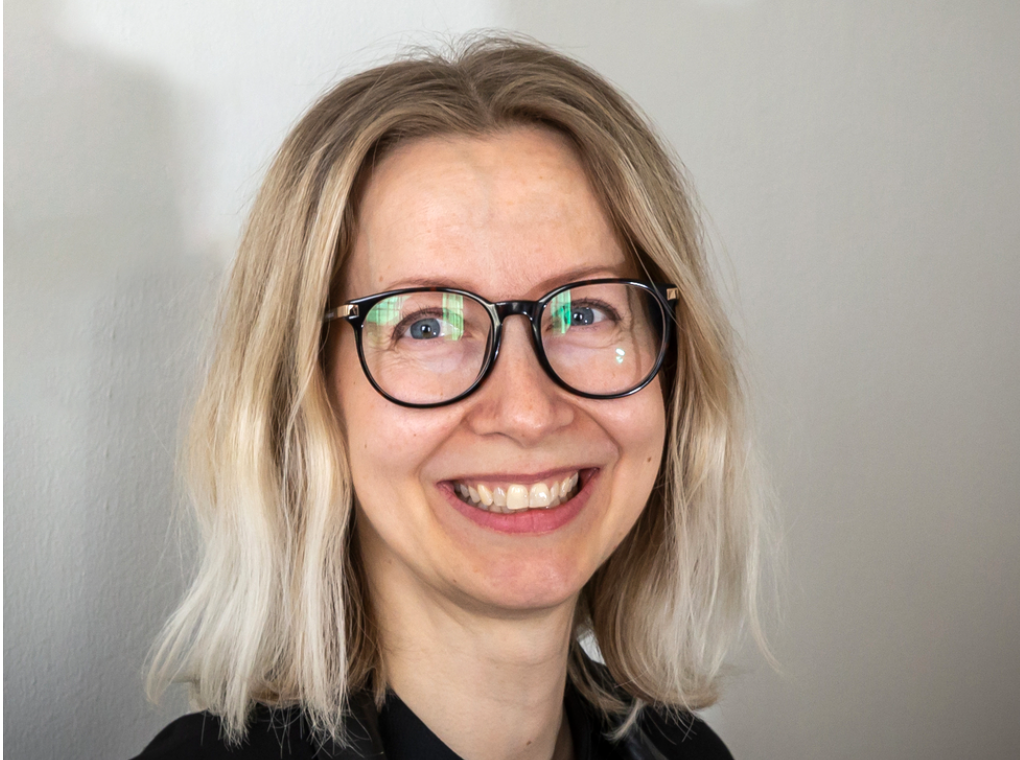
Ásta Jóhannsdóttir,
Assistant professor
at School of Education
Assistant professor
at School of Education
"Research is very important to us all. It would be hard to create new knowledge and develop society and change it to the better without research," says Ásta Jóhannsdóttir, assistant professor at the University of Iceland's School of Education. These words are not surprising coming from Ásta as she takes keen interest in the societal impact of research.
Ásta is currently leading an extensive study with Kristín Björnsdóttir, professor at the University's School of Education, entitled Disability in the times of pandemic funded by Rannís (the Icelandic Centre for Research). A part of the research was mapping the situation of disabled people in the times of disasters and pointing out ways to improve their situation.
Societal Impact
Reduced Inequalities and Health and Wellbeing which are part of the Sustainable Development goals of the United Nations.
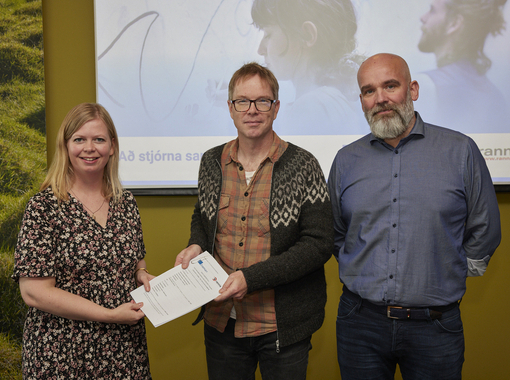
Ólafur Páll Jónsson,
Professor of Philosophy
at Faculty of Education
Professor of Philosophy
at Faculty of Education
Tinkering for sustainability at School is the name of a project that recently received an Erasmus+ grant. Ólafur Páll, Professor of Philosophy at the Faculty of Education, is leading it on behalf of the University of Iceland. The project aim is to support teachers who want to promote sustainability in schools, both in formal and informal education. The project is in collaboration with a Greek organization and the Science Museum in Amsterdam, which has developed so-called tinkering methods in teaching.
Societal Impact
Sustainable Cities and Communities which is part of the Sustainable Development goals of the United Nations.
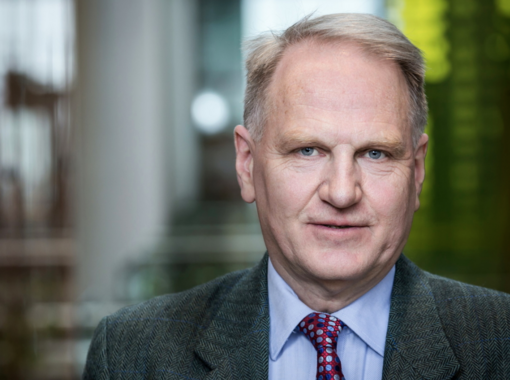
Ingólfur Ásgeir Jóhannesson,
Professor at Faculty of Education and Diversity
Professor at Faculty of Education and Diversity
"There are concerns in our society about the numbers of women leaving the teaching profession, including the fact that many young teachers do not last long in the job. Sometimes the discussion focuses more on worries about getting more men into teaching, but the fact is that when there are vacant teaching positions, gender and age don't really matter – the only thing that matters is whether you are able to work with the children and teenagers who need a teacher," says Ingólfur. Along with his colleagues, he is currently investigating how newly qualified female teachers manage during their first two years as compulsory school teachers and to what extent their experiences in compulsory schools are related to preconceptions about sex and gender roles.
Societal Impact
Gender Equality and Quality Education which are part of the Sustainable Development goals of the United Nations.

Þóroddur Bjarnason,
Professor of Sociology
Professor of Sociology
Þóroddur Bjarnason, Professor of Sociology has researched regional development and migration patterns in Iceland from various perspectives. Topics of research include the causes and consequences of migration in Iceland, the influence of sexual orientation, gossip, and bullying on youth migration intentions, the predictive value of migration intentions for regional development over decades, the effects of on-campus and distance higher education on the future residence of university graduates, the effects of transportation infrastructure improvements on regional development, commuting for work, and perceptions of health care security, the effects of migration experiences on sectarian attitudes among Catholics and Protestants in Northern Ireland, support for Brexit in Britain, and tolerance towards immigrants in Iceland, as well as counterurbanization and microurbanization in the Nordic countries.
The results of this research has been utilized in various ways in the development of regional policies in Iceland in recent decades.
Societal Impact
Reduced Inequalities, Quality Education and Peace and Justice and Strong Institutions which are part of the Sustainable Development goals of the United Nations.
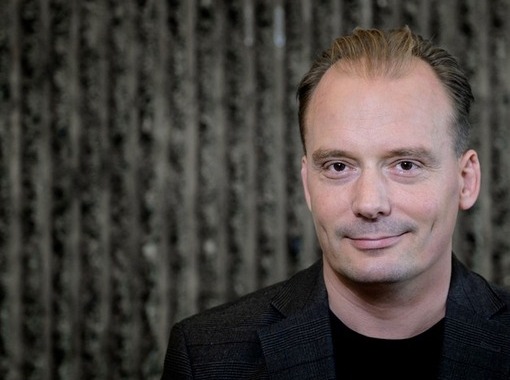
Haukur Logi Karlsson
Postdoc at Faculty of Law
Postdoc at Faculty of Law
Haukur Logi Karlsson is investigating competition law to discover whether it would be beneficial to expand the law so that it addresses not only consumer interests but also worker interests.The research is intended to contribute to the discussion taking place now in both the US and Europe about worsening conditions for workers in our globalised economy, where companies are continually growing larger and concentration of market control is increasing. The research maps what could be done within competition law to protect workers' interests in the face of companies' increasing control over the labour market. This mapping will focus in particular on the theoretical foundation for competition law, which is based on both jurisprudential and economic considerations.
Societal Impact
Economical Impact: Economy, politics and society. The theoretical basis of the competition law is studied, on a legal philosophical basis and an economic basis.
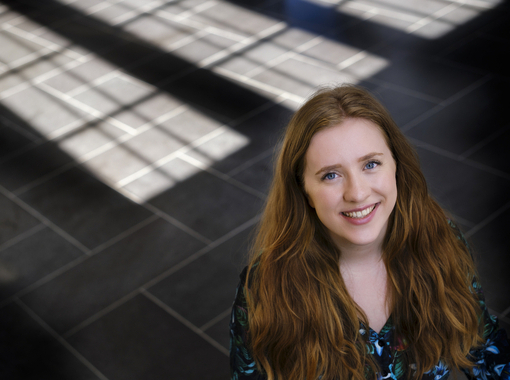
Guðbjörg Ríkey Th. Hauksdóttir,
PhD student in Political Science
PhD student in Political Science
"My background is in Chinese studies and international affairs, so I have a long-standing interest in China and politics. After I decided to do a PhD, I knew that I wanted to look more into the expanding presence of China in the Arctic region. After discussing some ideas with my supervisor and mulling it over for some time, this was the topic I chose for my thesis project," explains Guðbjörg Ríkey, who began the project before the Russian invasion of Ukraine.
She also has a strong interest in Chinese and Russian politics and everything to do with the Arctic region. "I'm also passionate about everything to do with security and defence issues. So this topic suits my interests very well."
Societal Impact
Peace, Justice and Strong Institutions which is part of the Sustainable Development goals of the United Nations.
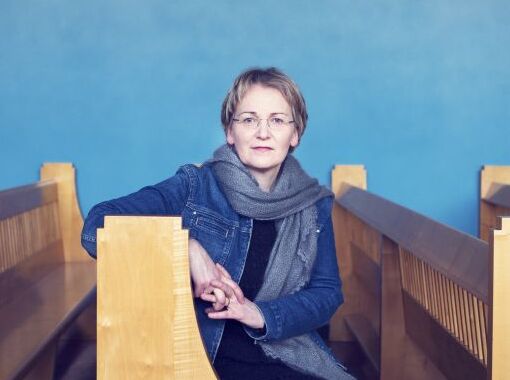
Arnfríður Guðmundsdóttir,
Professor in Theology
Professor in Theology
Theology and feminist theology are mainstays in the research of Dr. Arnfríður. She has conducted research in theology based on feminism and in the field of environmental theology. One of the guiding principles has been the question of the experiences that are taken into account in society at any given time and how women are affected in that regard. Arnfríður further believes that the role of theology is to interpret and define our relationship with nature, and points out that man has subjugated nature in a similar way to that of the man who has dominated the woman.
Societal Impact
Gender Equality: Making theological arguments for equality in a broad sense, especially within the Church.
Climate Action: To demonstrate the importance of the religious element in the increasing awareness of the value of nature and the fight against climate change.
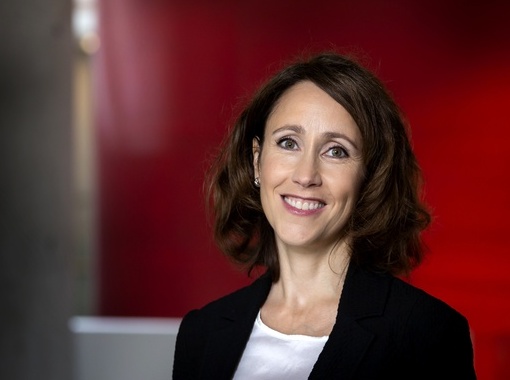
Sif Ríkharðsdóttir,
Professor in Medieval Literature
Professor in Medieval Literature
Dr. Sif Ríkharðsdóttir research is focused on cross-cultural and comparative studies of medieval literature, emotion theory, particularly literary emotionality, translation studies, voice and gender. In the research project Emotion and the Medieval Self in Northern Europe the aim was to explore the performance of emotion in medieval literature and the implications such performativity has for medieval selfhood and self-awareness in Northern Europe.
Societal Impact
Cultural impact: Research on the Icelandic cultural heritage and performance of emotion in Northern Europe and its relation to selfhood in the Middle Ages.
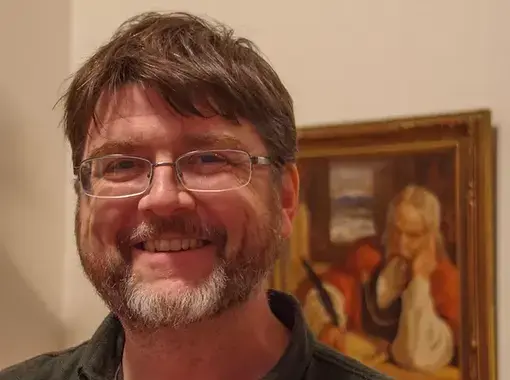
Orri Vésteinsson,
Professor in Archaeology
Professor in Archaeology
Orri says that the ideas about past societies are never more accurate than the knowledge we have about them, and that the role of archeology is to update these ideas in light of new research. Orri describes this role as identity maintenance. "In my mind, it's a way of studying people - and studying people in the past gives us a broader perspective on our own society."
Societal Impact
Cultural impact: Keeping knowledge up to date on the societies of past centuries, raise new questions and make attempts to answer them.
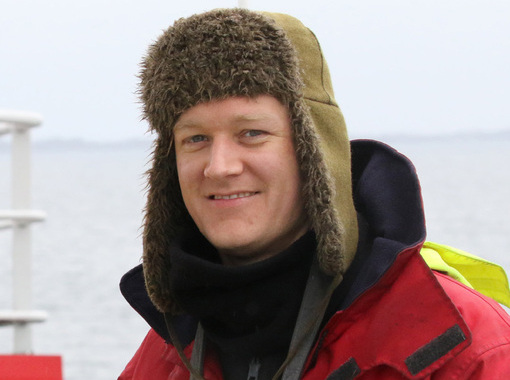
Paul J Wensween,
Research Specialist at the Faculty of Life and Environmental Sciences
Research Specialist at the Faculty of Life and Environmental Sciences
Dr. Paul studies the acoustic and movement behaviour of whales and dolphins and their responses to human-generated underwater sound.
His present work focusses on the migration movements of northern bottlenose whales and the behavioural impacts of naval sonar on this species and other cetaceans.
This research informs assessments of the conservation status of animal populations in the wild and helps navies and other ocean noise producers to reduce the environmental effects of their activities.
Societal Impact
Life below water, which is one of Sustainable Development goals of the United Nations.
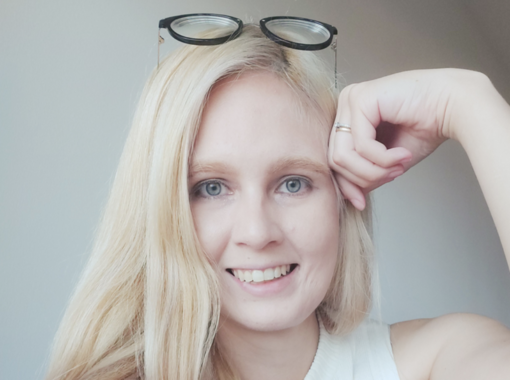
Camila Pía Canales,
Research Specialist
at Faculty of Industrial Engineering, Mechanical Engineering and Computer Science
Research Specialist
at Faculty of Industrial Engineering, Mechanical Engineering and Computer Science
Dr. Camila Pía presented two exciting projects on sustainable production of hydrogen at the Functional Materials and Nanotechnology (FM&NT) congress held in Riga, Latvia, in July.
The first project is called AliCe-Why project, conducted in collaboration with researchers across Europe as well as professors Christiaan P. Richter and Rúnar Unnþórsson at the University of Iceland. The main goal of the project is to use aluminum waste to produce hydrogen.
The second project is related to the production of hydrogen using seawater and the future perspectives of developing this idea due to the diminishing supplies of freshwater.
Societal Impact
Clean Water and Sanitation and Industry, Innovation and Infrastructure which are part of the Sustainable Development goals of the United Nations.
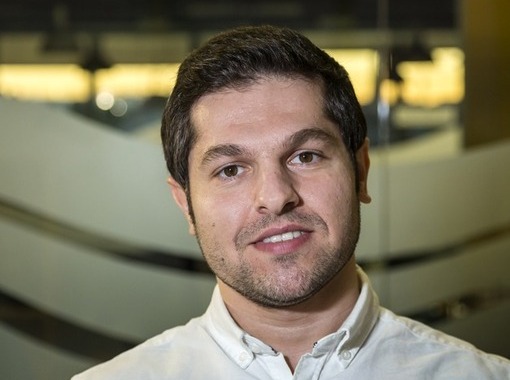
Majid Eskafi,
Postdoctoral researcher in Environmental Engineering
Postdoctoral researcher in Environmental Engineering
Majid is currently conducting a specialised research project looking at ports in collaboration with Icelandic businesses. This project clearly aligns with the new Strategy of the University of Iceland, UI26, which emphasises that research at UI should meet the needs of Icelandic society and industry and promote a sustainable world.
The goal of the research is to develop an innovative and highly adaptable port plan that guarantees continuous operations in a time of constant change and ensures that all expansion is appropriate for the environment and the community, in the short and long term. The team, which is made up of numerous stakeholders involved with the ports in the Ísafjörður area, is looking at social responsibility in this context. There are many ports in the area, the largest of which is in Skutulsfjörður.
Societal Impact
Sustainable Cities and Communities and Industry, Innovation and Infrastructure which are part of the Sustainable Development goals of the United Nations.
Societal impact affects sustainable development,
economic prosperity, or the welfare of individuals

University of Iceland
Types of Societal Impact...
Cultural
Contribution to understanding of ideas and reality, values and beliefs.
Economical
Contribution to the sale price of products, a firm's costs and revenues (micro level), and economic returns either through economic growth or productivity growth (macro level).
Environmental
Contribution to the management of the environment, for example, natural resources, environmental pollution, climate and meteorology.
Health
Contribution to public health, life expectancy, prevention of illnesses and quality of life.
Political
Contribution to how policy makers act and how policies are constructed and to political stability.
Science
Contribution to the subsequent progress of knowledge, the formation of disciplines, training and capacity building.
Social
Contribution to community welfare, quality of life, behaviour, practices and activities of people and groups.
Technological
Contribution to the creation of product, process and service innovations.
Educational
Contribution to curricula, pedagogical tools, qualifications.
